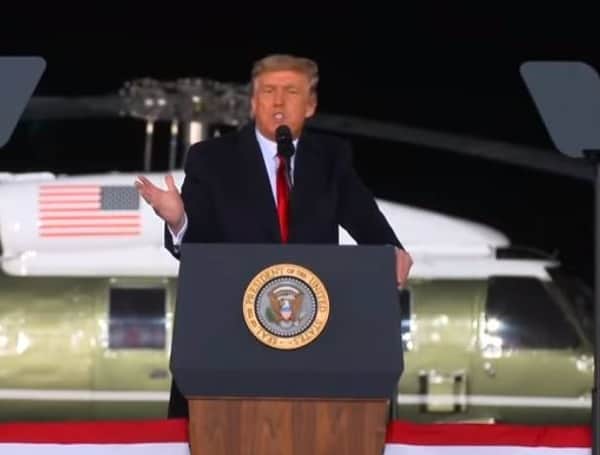Although they didn’t quite say it this way, a group of Democratic pollsters on Tuesday revealed what many of us knew all along: don’t pay attention to public opinion polls.
Five polling firms supportive of Democratic causes and candidates – ALG Research, Garin-Hart-Yang Research Group, GBAO Strategies, Global Strategy Group, and Normington Petts – released a joint statement of a navel-gazing exercise they undertook after the election results proved them wrong, again.
To recap, former President Donald Trump ran stronger than liberals expected him to – Trump missed a second term by just 43,000 votes spread across three states, Arizona, Georgia, and Wisconsin – Republicans unexpectedly picked up seats in the House and the GOP made gains in statehouses across the country.
Alternatively, Trump illustrates the point. According to FiveThirtyEight.com, pollsters across the board projected Biden to win by 8.4 percentage points. His actual margin was half that. And, in fact, as the Epoch Times reported, Trump’s finish in Republican areas was 6.4 points higher than pollsters anticipated.
“Every one of us thought Democrats would have a better Election Day than they did,” these Democratic survey-takers stated.
“So, what went wrong?”
“There is not a single, definitive answer,” they then add, “which makes solving the problem especially frustrating.”
One problem they encountered was that they undercounted white non-college-educated voters in Republican areas. They dubbed that a “turnout error,” which meant people voted in greater numbers than the pollsters’ expected them to. That’s because people lie to pollsters.
“Simply asking people whether they will vote is unreliable, because people tend to overreport their likelihood of voting as it’s socially desirable to do so,” the pollsters stated. Instead, they look at historical voting records.
Yet that didn’t work either.
Related News: Florida House Republicans Condemn ‘Democratic Socialism’ – And By Extension, Bernie Sanders
“We found our models consistently overestimated Democratic turnout relative to Republican turnout in a specific way,” they said.
“Among low propensity voters — people who we expect to vote rarely — the Republican share of the electorate exceeded expectations at four times the rate of the Democratic share. This turnout error meant, at least in some places, we again underestimated relative turnout among rural and white non-college voters, who are overrepresented among low propensity Republicans.”
Translation, which Republicans should heed: Trump, or perhaps fear of the Democrats, brought people who might not otherwise vote to the precincts.
“How to properly account for these voters in higher and lower turnout elections will be a challenge going forward,” the pollsters admit.
They then dabble in other theories as to why they missed the mark.
They dismissed people making up their minds and acting at the last minute. They considered that mask-wearing progressive were more likely to stay home and take their calls than those renegade conservatives. And “social trust” has been depleted, a Trump phenomenon, to the point that his backers refused to answer polls.
“While there is evidence some of these theories played a part, no consensus on a solution has emerged,” they noted.
“What we have settled on is the idea there is something systematically different about the people we reached, and the people we did not. This problem appears to have been amplified when Trump was on the ballot, and it is these particular voters who Trump activated that did not participate in polls.” Again, Trump voters either were missed or simply avoided being polled, which is why, for the second election in a row, the outcome shocked liberals.
Or, put another way, as suggested by their comments, they were Democrats who were polling as Democrats.
They acknowledged that they “underrepresented voters who considered Trump to be ‘presidential,’” while they also “overrepresented voters” – liberals – “who support the government taking certain actions to intervene in the economy and people’s lives.”
“How do we get people to participate in polls, if they won’t answer our phones, or respond to surveys online? We don’t have that answer yet,” they added. Perhaps old-school door-to-door questioning is the way, they allowed.
But in summation, they maintained, “Our industry must figure out how to improve, and it is not going to be easy. … We believe polling plays a critical role in our democracy and gives a voice to the American people. And we believe we can, and must, do much better.”
Or, maybe you could stop, and the horse-race aspect of our politics and our political news coverage would stop as well, and people would focus on what candidates actually say and believe. Just a thought.
Related News: Florida Gov. DeSantis & Attorney General Ashley Moody Announce Lawsuit Against Biden Administration Shutdown of Cruise Industry
